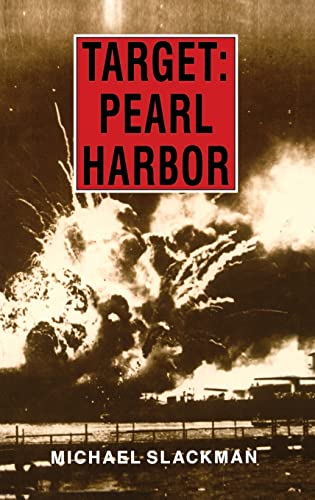Target: Pearl Harbor takes a fresh look at the air raid that plunged America into World War II by scrutinizing the decisions and attitudes that prompted the attack and left the United States unprepared to mount a successful defense. The core of the book concerns the events of December 7, 1941, as seen through the eyes of participants, both American and Japanese, military and civilian. The author's use of contemporary documents and interviews with survivors has enabled him to present a vivid and evocative picture of that day.
In this extremely vivid account of the Pearl Harbor attack, Michael Slackman takes us right through the course of events. He starts by scrutinising the circumstances and decisions that prompted the attack and left the United States so unprepared, looking at Japan's objectives in South-East Asia, the political and economic developments which drew them into conflict, and at American strategic thought.
The core of the book, however, concerns the events of 7 December 1941 itself, as seen through the eyes of both Japanese and American participants, Slackman recounts the experiences of these people and included stories and anecdotes from over a hundred interviews with survivors. His use of contemporary documents and firsthand personal accounts presents us with a remarkably intense and detailed telling of the attack.
He goes on to examine the aftermath of Pearl Harbour and all its consequences. While it was a short-term success for the Japanese, the attack led to the end of American isolationism and changed the course of the war.
With its central focus on the unfolding human drama and its succinct analyses of the events before and after the attack, Target: Pearl Harbor is an absorbing and detailed account of one of the most significant days of the Second World War.
